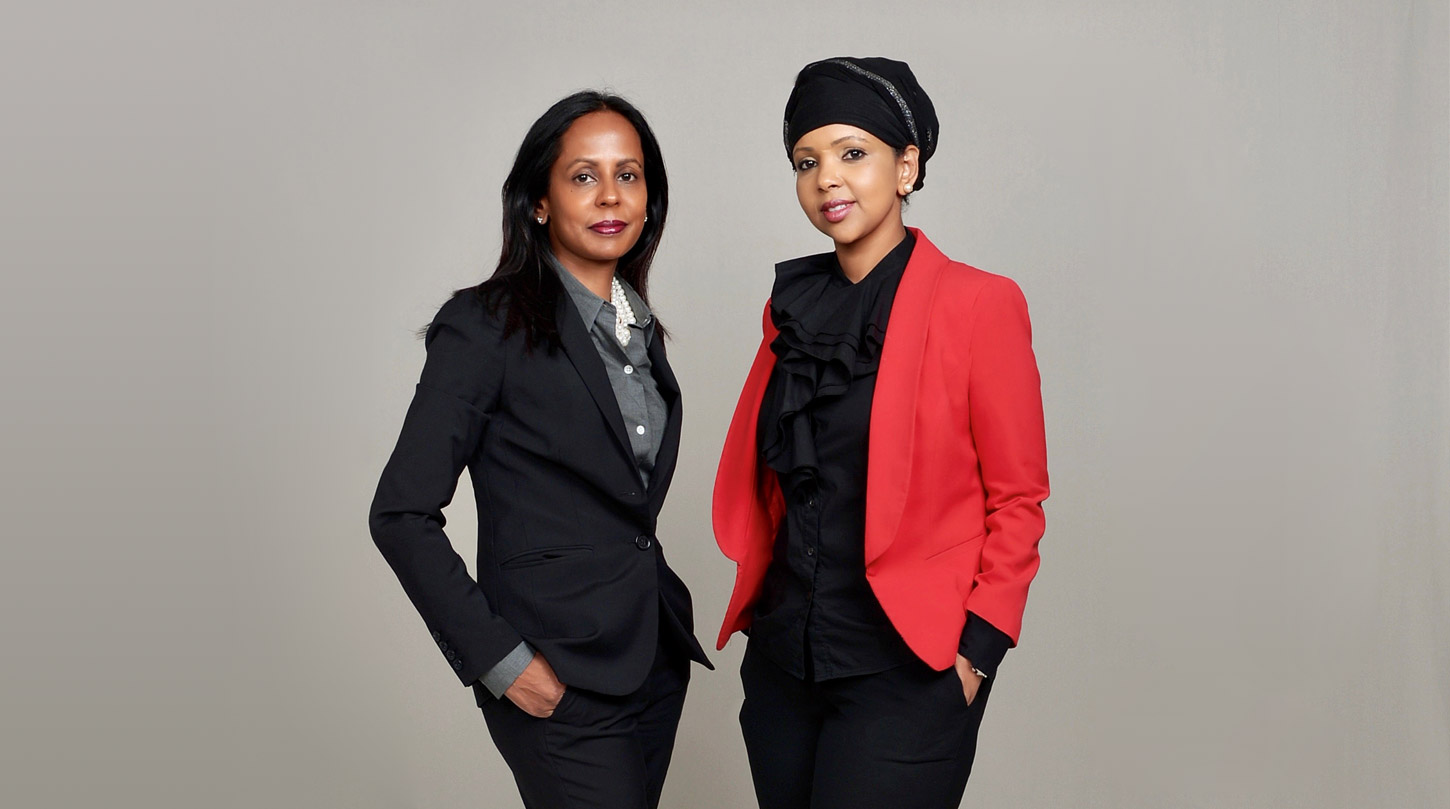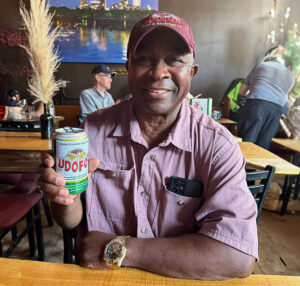Lined with diverse storefronts and colorful, cultural murals, the Lake Street Corridor in Minneapolis is vibrant and home to many immigrant-owned businesses.
Among these business owners are Khadija Ali and Priya Morioka, the founders of Global Language Connections. Their Lake Street business aims to a solve a pressing challenge for other organizations: language barriers.
Global Language Connections is a full-service language services company providing over 100 languages for interpretation, translation, cross cultural and business services. They serve for profit and non-profit clients in the fields of education, health care, business, legal, and government services.
Ali, president & CEO of Global Language Connections, did not speak a word of English when she first arrived in the U.S. from Somalia. She quickly realized the magnitude and the impact of language barriers. As soon as she learned English, she began interpreting and translating for family and friends.
Morioka, the business’s COO, shares a similar background. Her family experienced cultural and language barriers immigrating to the U.S. as well. In 2015, the two friends launched Global Language Connections.
In addition to helping organizations better communicate with clients, they strive to provide meaningful and steady employment for fellow immigrants.
“A lot of the linguists we work with do it not just for the money, but because they want to help their community,” Ali said.
Navigating unforeseen challenges
In 2020, Global Language Connections was experiencing unprecedented growth. But that March, the world changed with the onset of the COVID-19 pandemic.
“When COVID started the majority of our business was face-to-face,” Morioka said. “Ninety-eight percent of our business completely shut down.”
Though they had the ability to provide services remotely, many of their clients already had existing vendors to fulfill virtual needs. As they sought to pivot operations, George Floyd was murdered a few miles down the road.
“When the civil unrest started after George Floyd’s death, it was blocks away from where we are and it heavily impacted immigrant communities,” Morioka said.
“The elders in the community – for many of them, their banks and their mailboxes got burned down, especially on Lake Street,” Ali said. “We got so many calls from the East African and Latino community asking for help because they needed to find banks and they needed to be able to find their prescriptions.”
Though they started their business with a specific vision, Ali and Morioka were responsive to the needs of their community during a challenging and unprecedented time. Their interpreters shifted from traditional roles to serve as “community navigators” – driving the elderly to doctor appointments, to pick up their prescriptions, to collect their social security checks – all while translating and eliminating language barriers along the way.
“We were not operating as a business or getting a financial return, but we were getting a lot in return,” Ali said.
Finding small business financing to rebuild
In 2021, as the world slowly opened back up and the Lake Street community began the healing process, business also started to pick back up at Global Language Solutions. Ali and Morioka were adding new clients and resuming their pre-pandemic growth trajectory, but they needed additional capital to keep up with the demand. They turned to the Minnesota Inclusive Growth Fund (MIGF) to help rebuild their business.
MIGF, created by a group of five local mission-driven lenders, is designed to increase access to flexible and affordable capital and small business support services for underbanked businesses across Minnesota that have suffered a direct economic disruption as a result of COVID-19 or civil unrest.
After going through the MIGF application process, Ali and Morioka were connected with Community Reinvestment Fund, USA (CRF), one of the fund’s co-creators, and received a working capital loan.
These funds allowed Ali and Morioka to hire three new employees and enhance their business development, recruiting and marketing efforts. As co-owners, they feel they now have the help they need to better position their company for long-term success.
As they look toward the future, Ali and Morioka want to expand their reach beyond Minnesota and knock down cultural barriers around the world. And as entrepreneurs who understand the challenges associated with the American dream all too well, they are grateful for the capital they have received from MIGF to rebuild their business.
“It helped us not only achieve our goals so far, but I think we’ve exceeded them because of the MIGF support,” Ali said.
As a small business, if you financially don’t have the necessary support, it’s really hard to get to where you need. And I think as a minority-owned, women-owned business – we’ve been blessed. We know accessing capital is a struggle that some of our friends have faced, so it’s been really helpful getting assistance and support from an organization like CRF.
Khadija Ali – president and CEO, Global Language Connections.
The Minnesota Inclusive Growth Fund (MIGF) is designed to increase access to flexible and affordable capital and support services for small businesses across the State of Minnesota, with an emphasis on long-term recovery and growth- particularly in under resourced and underbanked communities.
The Fund offers financing up to $200,000 with a 60-month term at a 5% fixed interest rate for small businesses that can demonstrate a negative impact caused by the pandemic or civil unrest and can be used for working capital, to refinance high interest debt, and more.
Interested in MIGF financing? Learn more and apply today!



